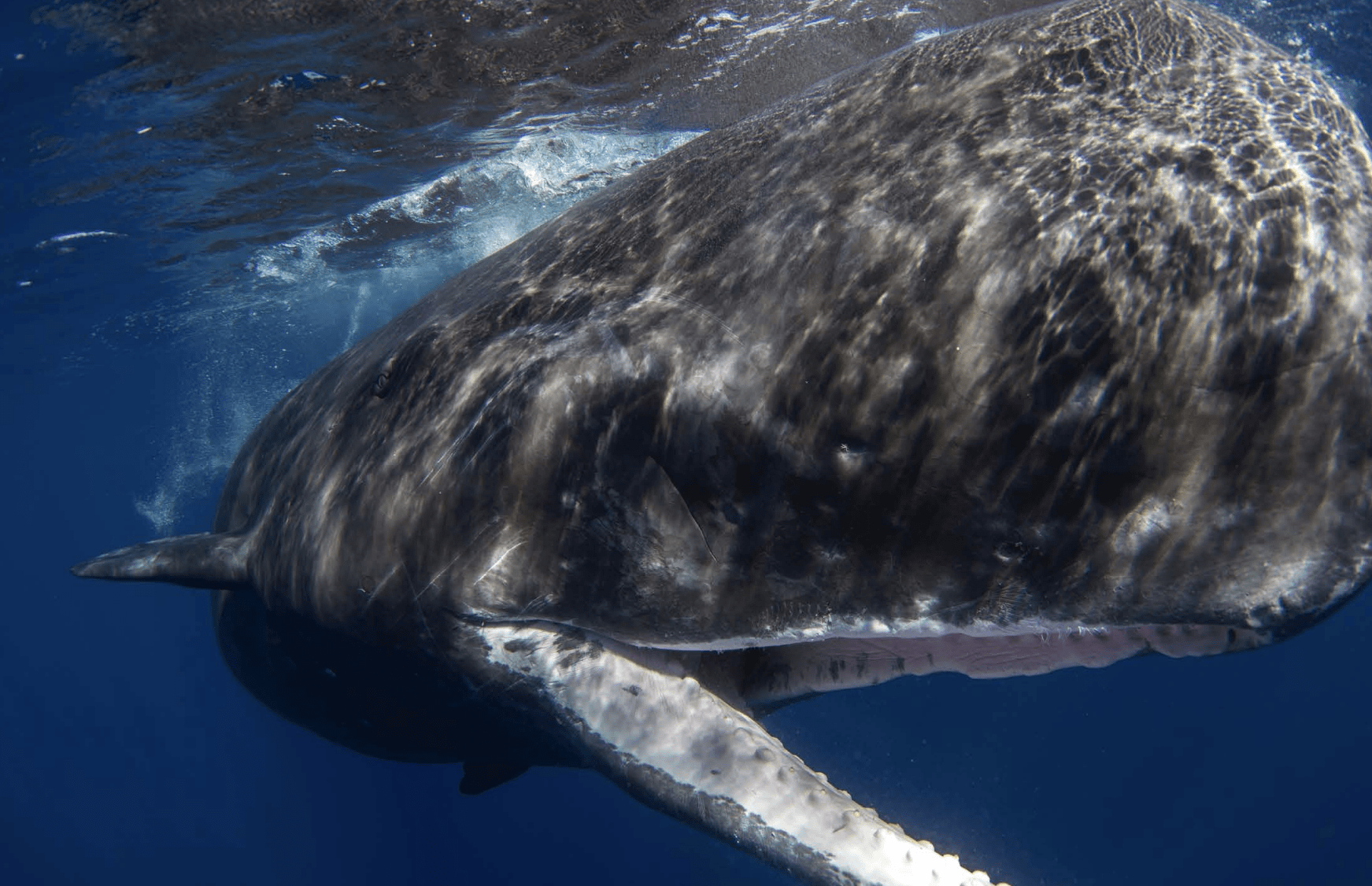On World Wildlife Day, we celebrate the astonishing creatures that share our planet and the lessons they impart. Among them, few are as enigmatic and powerful as Connecticut’s state animal— the sperm whale (Physeter macrocephalus).
Famed as the largest of the toothed whales, the sperm whale has inspired myths, literature, and scientific wonder for centuries. Herman Melville immortalized it in Moby-Dick, describing its massive head, formidable strength, and mysterious nature. But beyond legend, the sperm whale is a marvel of intelligence, social cohesion, and resilience—an animal whose adaptations offer valuable insights for human success.
The Science of the Deep Thinker
The sperm whale is an apex predator, yet its power is not found in speed or brute force. It is defined by something far more compelling—its mind. With the largest brain of any creature to have ever lived, the sperm whale demonstrates extraordinary problem-solving abilities, communication skills, and memory.
These deep-diving mammals rely on echolocation—an advanced sonar system—to navigate the vast, pitch-black depths of the ocean. By emitting clicks and analyzing the echoes that bounce back, sperm whales build mental maps of their surroundings, allowing them to track prey and communicate with pod members over vast distances. Scientists believe sperm whale clicks, known as codas, may even form a rudimentary language — a structured means of transmitting information across generations.
The lesson? Success is not just about moving forward— it’s about knowing where you are and where you’re going. In our fast-paced world, clarity of purpose and the ability to interpret our surroundings — whether in business, relationships, or personal growth — can make all the difference.
Navigating the Depths: Adaptation and Resilience
Sperm whales are built for the extreme. They dive deeper than any other marine mammal — plunging more than 3,000 feet below the surface in search of squid. Down in the abyss, they endure crushing pressures that would collapse a human lung, yet they have adapted in remarkable ways. By slowing their heart rate, storing oxygen in their muscles, and collapsing their ribcage to prevent damage, they thrive where few creatures can.
How does this apply to us? Success often demands resilience — the ability to endure setbacks, adapt, and push forward in unfamiliar terrain. Like the sperm whale, those who succeed are the ones who embrace discomfort, master new environments, and trust their ability to rise back to the surface.
The Strength of Community
Though often pictured alone in the vast ocean, sperm whales are deeply social animals. They live in tight-knit pods, consisting of mothers, calves, and extended family members. The bonds within these groups are vital — whales care for one another’s young, coordinate hunting efforts, and even stand guard when a pod member is injured.
One of the most extraordinary behaviors observed in sperm whales is babysitting — adult whales will take turns watching over the calves of others while mothers dive for food. This cooperative spirit underscores a simple but powerful truth: true success is not a solo endeavor.
In human terms, sperm whales remind us of the power of mentorship, teamwork, and trust. No great leader, entrepreneur, or innovator has ever succeeded in isolation. Building a strong support network, sharing wisdom, and helping others succeed is what elevates us all.
Legacy and the Long Game
Sperm whales can live for more than 70 years, making them one of the longest-lived marine mammals. Over their lifetimes, they pass down knowledge of migration routes, hunting grounds, and survival strategies. These lessons ensure the next generation is equipped to thrive.
Humans, too, succeed when we think beyond short-term gains. Whether through leadership, education, or innovation, those who leave a lasting impact are those who invest in the future. Like the sperm whale, the wisest among us are not just thinking about today, but about what we leave behind.
A Call to Protect
Despite their intelligence and adaptability, sperm whales face mounting threats. Once hunted nearly to extinction for their oil, they now contend with pollution, ship strikes, and entanglement in fishing gear. Noise pollution from commercial vessels disrupts their ability to communicate and navigate, making survival even more challenging.
Protecting sperm whales means protecting the oceans they call home. Simple actions — reducing plastic waste, supporting sustainable seafood choices, and advocating for marine conservation—can make a tangible difference.
Lessons from the Ocean’s Deep Thinker
On this World Wildlife Day, the sperm whale offers us a profound message:
Think deeply. Success is not just about speed — it’s about clarity, vision, and making informed decisions.
Adapt and endure. The ability to navigate challenges, adjust strategies, and remain resilient determines who thrives.
Build strong relationships. Success is magnified when we invest in our communities and support those around us.
Leave a lasting impact. Greatness is measured not just in personal achievement, but in what we pass on to others.
Let the sperm whale remind us that wisdom, patience, and connection are not just qualities of the deep — they are principles for a life well lived.
Jim Knox is Curator of Education at Connecticut’s Beardsley Zoo where he directs education and conservation initiatives to advance the protection of wildlife in Connecticut and beyond.




